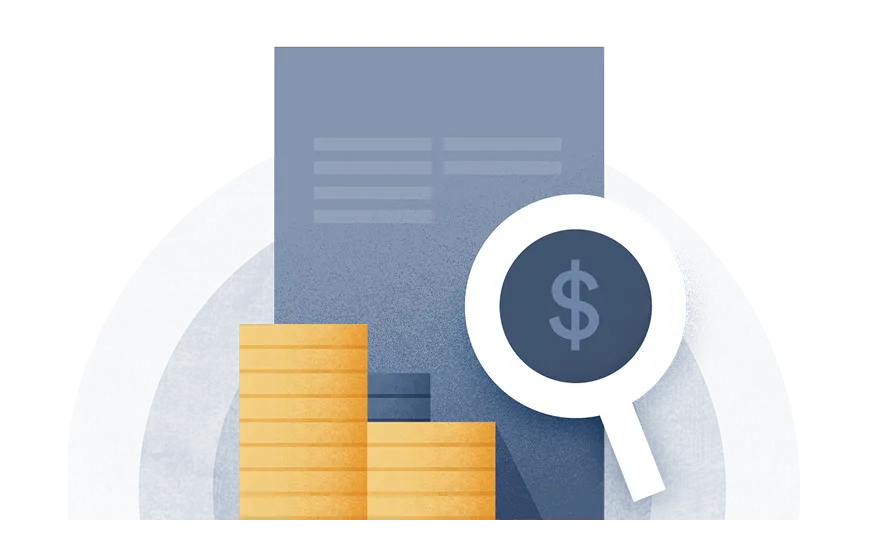Raising a family is challenging for any family, but it can be even harder for single mothers. They need to juggle work, childcare, school assignments, and household duties—often on their own.
Loans for single mothers make life easier by spreading payments over time to buy a home, purchase a car, cover medical bills, and finance other needs. While there aren't loans specifically designated for single mothers, anyone borrowing money on a single income may find it challenging to get approved.
Learn more about loan programs for single-parent households, how to use assets as collateral to get better terms, and how to qualify if you have a low credit score.
Loans for single mothers
Until the Equal Credit Opportunity Act (ECOA) was passed in 1974, it was legal for lenders to discriminate against applicants based on their sex, marital status, or familial status. Today, women have access to a wide variety of financial products. Here are a few common types of loans for single moms and dads.
Personal loan
A personal loan is a common financing option for single mothers or fathers. These loans provide a lump sum of cash upfront, and repayment terms are based on your income, credit score, and loan amount. Interest rates are typically fixed, and monthly payments remain constant, making it easier to budget for them.
Loan terms are usually three to seven years, but some lenders offer repayment periods as short as 12 months. Extending the repayment term increases the amount of interest you pay, but longer terms result in smaller monthly payments that are more affordable for single parents with one income.
Payday alternative loan
A Payday Alternative Loan, or PAL, is a small-dollar loan offered by certain federal credit unions as a safer option to high-cost payday loans. Unlike traditional payday loans—which often come with steep fees and short repayment windows—PALs are designed to be more affordable and manageable.
Loan amounts usually range from $200 to $2,000, with repayment terms that stretch from one to twelve months, giving borrowers more breathing room. Interest rates are capped by federal regulation, so they’re much lower than payday lenders typically charge, and application fees are minimal.
To qualify, you generally need to be a member of the credit union offering the PAL, though some credit unions allow new members to apply after a short waiting period. For borrowers who need quick access to cash but want to avoid the debt traps of payday loans, PALs can be a smart alternative.

Peer-to-peer lending
Peer-to-peer lending platforms offer a way to get approved for a loan as a single mom or dad outside of the traditional banking system. Borrowers share their story and submit personal financial details, and then individuals contribute money toward fulfilling their loan request. Depending on the platform, investors can contribute as little as $25 toward your application.
Interest rates on peer-to-peer lending platforms are usually determined based on your credit score, the repayment term, and how much you're borrowing. The major downside is that you may not receive any money if investors do not fully fund your entire loan request. Additionally, you may only have a short window of time for investors to contribute. In the meantime, you're in a holding pattern, wondering whether or not your loan request will be funded.
Asset-backed loans
Borrowing against your assets can be a good option for loans for single moms. With assets securing the loan payback, lenders are often more willing to lend to borrowers whose income or credit score may not meet ordinary underwriting requirements.
Home equity loans and lines of credit
Borrowers with equity in their homes can get cash out without refinancing their primary mortgages. These home loans for single mothers typically have higher rates than mortgages, but most banks pay for the origination costs. Since they cost less to obtain and don't affect your mortgage rate, they are an ideal way to tap your equity.
A home equity loan provides a lump sum of cash and offers a fixed interest rate and consistent monthly payments. Home equity lines of credit (HELOCs) have a maximum credit limit and a variable interest rate. However, you only pay interest on the amount you use. As you repay the balance, you free up additional credit that can be used at a later date.
Home equity investments
A home equity investment (HEI) is a competitive option for single parents because there are no monthly payments. Additionally, you don't have to verify your income, and you don't need perfect credit to qualify. Instead of making monthly payments, the lender participates in the appreciation of your home when you sell your house, refinance it, or buy back your equity. For single parents with a tight budget, being able to pull cash from your home without adding another monthly payment can be a huge financial relief.
401(k) loans
Workplace retirement plans can provide a source of cash when you need it most. Withdrawing money from your 401(k) or other company retirement plan can trigger taxes and penalties, but taking 401(k) loan against your balance does not. Federal law allows employees to borrow up to 50% of their retirement plan balance, or $50,000, whichever is less.
You'll repay the loan through your normal paycheck contributions, but you can also pay extra to accelerate your loan payoff. If you leave your job before the loan is repaid, the remaining balance is treated like a withdrawal, and you'll owe taxes and penalties on that amount if you're under 59 1/2. Since failing to make catch-up contributions can result in a retirement shortfall, it’s best to consult a financial advisor before taking out a 401(k) loan.
How to get approved for loans for single mothers
Here are a few steps you can take to increase the approval odds for your loan application.
Review credit report for errors
Credit report errors can impact your ability to get approved for a loan. These errors can lower your credit score or they can affect your debt-to-income ratio. A study by Consumer Reports found that almost half of consumers found mistakes on their credit reports. Of those who found mistakes, more than half had errors that could damage their credit scores. Get a free copy of your credit report at AnnualCreditReport.com.
Lower your debt-to-income ratio
An important factor when approving loans for single mothers is your debt-to-income ratio (DTI). This ratio indicates how much of your income is going toward minimum payments on your debt. Lenders often have a maximum DTI they'll allow for each type of loan. The higher your DTI is, the greater your risk of missing a payment or defaulting on the loan. You can lower your DTI by increasing your income (ex: getting a raise, changing jobs, starting a side hustle) or lowering your debt (ex: paying off an account, lowering your credit card balances).
Pay down debt
One of the quickest ways to boost your credit score is to pay down revolving debt, like credit cards and lines of credit. Your utilization ratio is the ratio of your balances versus your credit limit and makes up 30% of your score. This ratio compares each credit card and line of credit, as well as the total outstanding against your total credit limit. Ideally, your utilization ratio should be under 30% for each credit card.
Activate Experian Boost
If your traditional credit score is too low, consider activating Experian Boost. This optional program uses non-traditional credit information to post positive payment histories to your credit report. It allows payments to cell phone companies, utility bills, landlords, and insurance policies to count toward your credit score.
Prequalify before applying
Many banks allow potential borrowers to see if they're prequalified for a loan. This process uses a soft credit pull and doesn't impact your credit score. If you're prequalified and like the terms of the loan, then you can submit the rest of your information for full approval and funding. If not, move on to the next lender without the prequalification affecting your credit.
Seek out assistance programs
Government and community assistance programs offer aid to single parents who need financial assistance. Depending on your situation, you may qualify or grants that don't need to be repaid or low-interest loan programs with smaller monthly payments. The financial aid may be a one-time payment for an emergency need or ongoing financial support that helps cover recurring household expenses like food, utilities, or rent.
Compare government-backed loan programs (FHA loans, USDA loans)
If you're considering a mortgage refinance, compare conventional loans against FHA loans and USDA loans. These government-backed loan programs offer competitive interest rates and more lenient underwriting standards. You may also qualify for a higher loan-to-value (LTV) ratio than what's available under conventional mortgage programs, so you can pull more cash out of your home.
Frequently asked questions
Can a single mother get a personal loan with bad credit?
Yes, you can get a personal loan for single mothers even if you have bad credit. The interest rates and fees may be higher than average, but as you build a stronger credit profile, you can qualify for lower interest rates that can reduce your monthly payments.
How can I qualify for a loan as a single mom with low income?
Borrowers with low income can qualify for loans by pledging assets like a home, investments, or a vehicle, or by adding a co-signer to their application. Lenders are more willing to approve loans when assets secure repayment or when someone with a stronger credit profile or higher income is willing to co-sign the loan.
What is the easiest loan to get for a single mom?
The easiest loans for single moms to get are often government-backed loans or those from community banks or credit unions. These lenders typically have more lenient credit guidelines, which allow them to approve borrowers that large banks may not.
Can a single mom qualify for FHA or USDA home loans?
Yes, home loans for single moms are available from the FHA and USDA. These loan programs specialize in low-income borrowers who may have smaller down payments or lower credit scores.
How can I improve my chances of getting approved for a loan as a single mom?
For the best odds of getting approved, take steps to increase your credit score before applying. Borrow only what you need to keep payments more manageable, which will also keep your debt-to-income ratio lower and more likely within the bank's underwriting guidelines.

The bottom line
While being a single parent carries many challenges, getting approved for loans for single mothers doesn't have to be difficult. There are numerous loan programs available for single-income households, including government-backed loans that make it easier to borrow if you have a lower income or damaged credit.
Before applying for a loan, take steps to improve your credit and boost your income to give yourself the best shot of getting approved. If your income is tight, consider applying for government and community grants that don't have to be repaid or home equity investments that don't increase your monthly expenses.
No income? No problem. Get a home equity solution that works for more people.
Prequalify in 60 seconds with no need for perfect credit.
Show me my offer
Frequently asked questions
.png)
Thank you for subscribing!
.webp)















